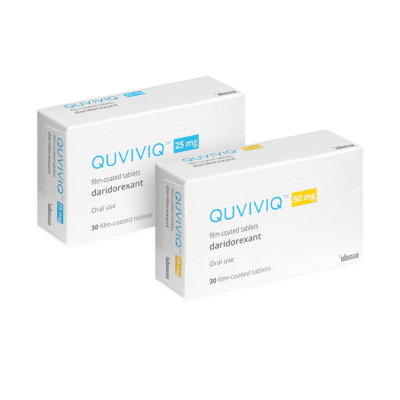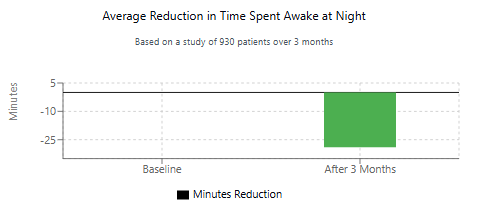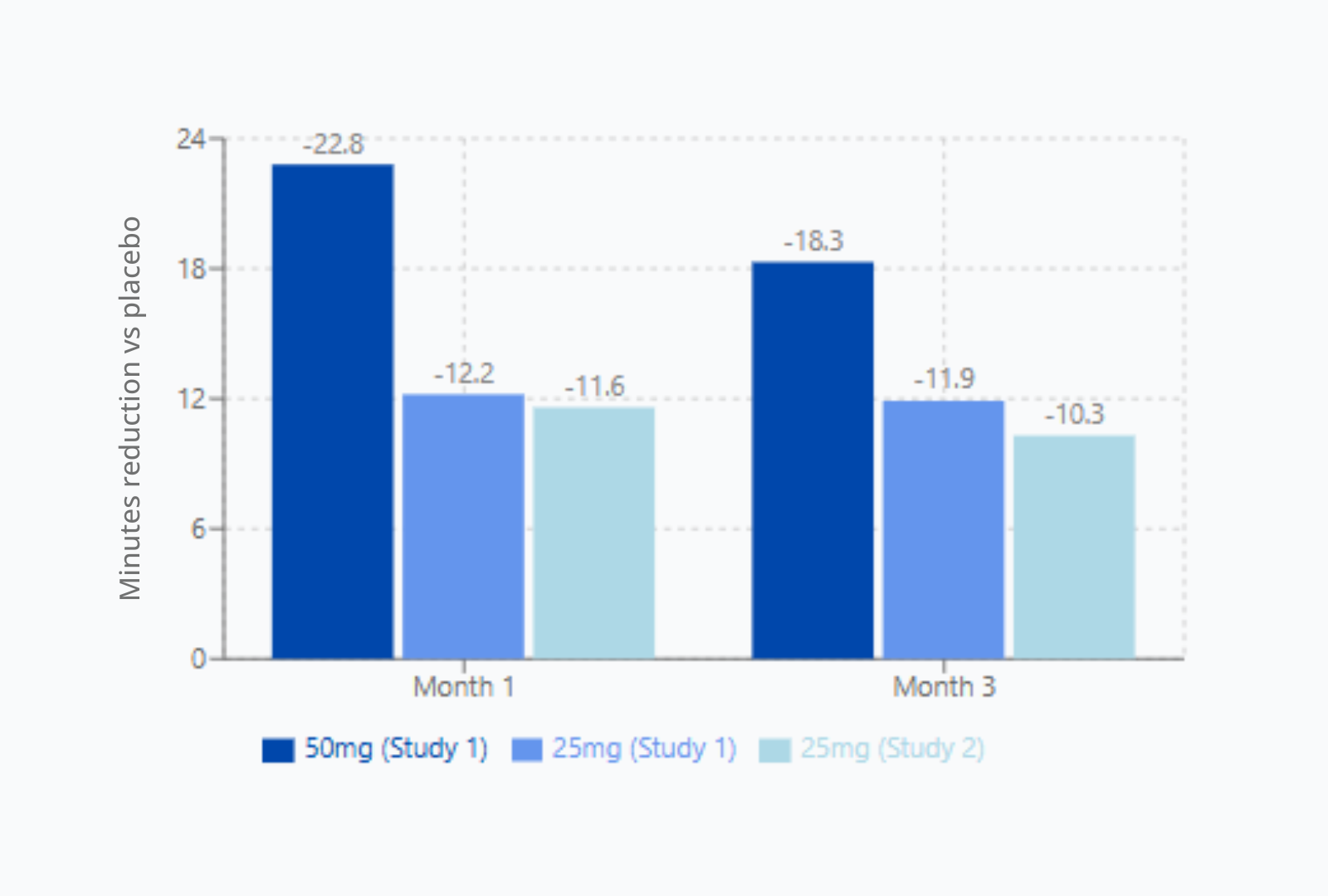QUVIVIQ
- Reduced Morning Grogginess
- Improved Sleep Quality and Duration
- UK Regulated Pharmacy
QUVIVIQ
Category:Sleep Help (Insomnia)QUVIVIQ (daridorexant) is a prescription medication specifically designed for adults struggling with insomnia. Unlike traditional sleep medications that primarily sedate patients, QUVIVIQ works by targeting the brain's orexin system—a key regulator of wakefulness and sleep cycles. By blocking orexin receptors, it helps restore natural sleep patterns without heavy sedation, potentially reducing the morning grogginess associated with other sleep aids.
Fetching Data...
All inclusive services
No extra costs
Free tracked delivery
Delivered in plain packaging
Prescription included
No consultation charges
Frequently Asked Questions for QUVIVIQ
What It Is
QUVIVIQ (daridorexant) is a prescription medication specifically designed for adults suffering from insomnia - a sleep disorder characterized by difficulty falling asleep, staying asleep, or getting restorative sleep. It's approved for the treatment of adult patients whose insomnia symptoms have been present for at least 3 months and significantly impact daytime functioning.
How It Works
Unlike traditional sleep medications that rely on sedation, QUVIVIQ works through a different mechanism:
- It targets and blocks the OX1R and OX2R orexin receptors in the brain
- Orexin is a neuropeptide responsible for regulating sleep-wake cycles
- By blocking these receptors, QUVIVIQ helps restore the natural sleep-wake cycle
- This approach enhances both sleep duration and quality
- Patients can fall asleep more naturally without heavy sedation
- This mechanism may result in less morning grogginess compared to sedative medications
Side Effects
Common side effects include:
- Headache
- Somnolence (drowsiness)
More serious side effects may include:
- Decreased awareness and alertness the morning after taking it
- Daytime sleepiness that may increase risk of falls
- Sleep paralysis (temporary inability to move or talk while falling asleep or waking up)
- Hallucinations during sleep-wake transitions
- Cataplexy-like symptoms (temporary weakness in legs)
- Complex sleep behaviors (sleepwalking, sleep-driving, eating, making calls, or having sex while not fully awake)
- Worsening depression and suicidal thoughts
Warnings and Precautions
Who Should Not Take QUVIVIQ:
- People with narcolepsy
- Those allergic to daridorexant or any ingredients in QUVIVIQ
- Patients using strong CYP3A4 inhibitors
Special Precautions:
- It's a federally controlled substance due to potential for abuse or dependence
- Do not take more than prescribed
- Take only if you can stay in bed for at least 7 hours
- Take within 30 minutes before bedtime
- Avoid alcohol while using QUVIVIQ
- Do not drive or operate machinery if you don't feel fully alert
- Use caution in elderly patients, especially those over 75
- Tell your healthcare provider about all medical conditions, particularly:
- History of depression, mental illness, or suicidal thoughts
- Drug or alcohol abuse
- Lung or breathing problems including sleep apnea
- Liver problems
- Pregnancy or breastfeeding
- Do not take with other medicines that cause sleepiness unless instructed by your doctor
- Avoid grapefruit juice in the evening when taking QUVIVIQ
Always consult with your healthcare provider for personalized guidance on whether QUVIVIQ is appropriate for your specific situation.
How is Quviviq Different From Other Medications?
Different Mechanism QUVIVIQ targets overactive wake signals—a root cause of insomnia—rather than sedating the brain like many sleep medications.
Regular Use Unlike "as-needed" sleep aids, QUVIVIQ is designed for nightly use to establish consistent sleep patterns, with benefits measured over months.* *Based on clinical studies at 1 and 3 months
Progressive Benefits Users reported improved sleep after just 1 week, with increasing benefits over 3-4 weeks.* See how QUVIVIQ is transforming sleep routines. *Improvements documented in clinical studies at 1 and 3 months
Quviviq Clinical Trial Results
Key Finding:
Patients taking 50mg Quviviq reduced time awake by 29 minutes on average.
QUVIVIQ 50mg: Impact on Sleep Onset
Time to Fall Asleep - Before vs. After 3 Months of Treatment
Key Finding: After 3 months of treatment, patients taking 50mg Quviviq fell asleep 35 minutes faster compared to baseline.
Quviviq (Daridorexant) Clinical Trial Results: Month 1 to Month 3
Wake After Sleep Onset (WASO)
This graph shows improvements in sleep maintenance. Phase 3 trials showed Quviviq significantly reduced time spent awake during the night, with the 50mg dose most effective.



